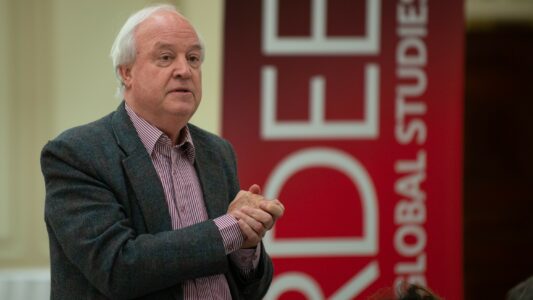Heine’s Insights Explore the Global South’s Geopolitical Impact in Le Monde Feature

Amb. Jorge Heine, Research Professor at Boston University’s Frederick S. Pardee School of Global Studies and Interim Director of the Frederick S. Pardee Center for the Study of the Longer-Range Future, and author of the book, “Latin American Foreign Policies in the New World Order: The Active Non-Alignment Option.” was cited in a recent Le Monde article, France’s leading daily, shedding light on the rise of the Global South as a geopolitical disruptor. The article explores the diverse interests within this influential political constituency, emphasizing its contested relationship with the Western order.
Heine, along with colleagues Carlos Fortin and Carlos Ominami, introduced the idea of “active non-alignment,” which, as he succinctly puts it, reflects the 21st-century reality where nations in the Global South, when pursuing their interests, may not align uniformly and often employ distinct methods. In his words,
“Their interests often diverge, including in climate matters. It even happens that they join those from the West.”
The piece in Le Monde discusses how the Global South, despite its disparities, has become a powerful political constituency. The article refrains from portraying it as an actor offering an alternative model to the Western order but highlights the significance of the Global South in shaping a new form of globalization. Professor Heine’s insights provide a nuanced understanding of the complexities within this geopolitical disruptor, enriching the ongoing discourse on global power shifts, and can be accessed here.
Ambassador Jorge Heine is a Research Professor at the Pardee School of Global Studies at Boston University. He has served as ambassador of Chile to China (2014-2017), to India (2003-2007), and to South Africa (1994-1999), and as a Cabinet Minister in the Chilean Government. Read more about Ambassador Heine on his Pardee School faculty profile.